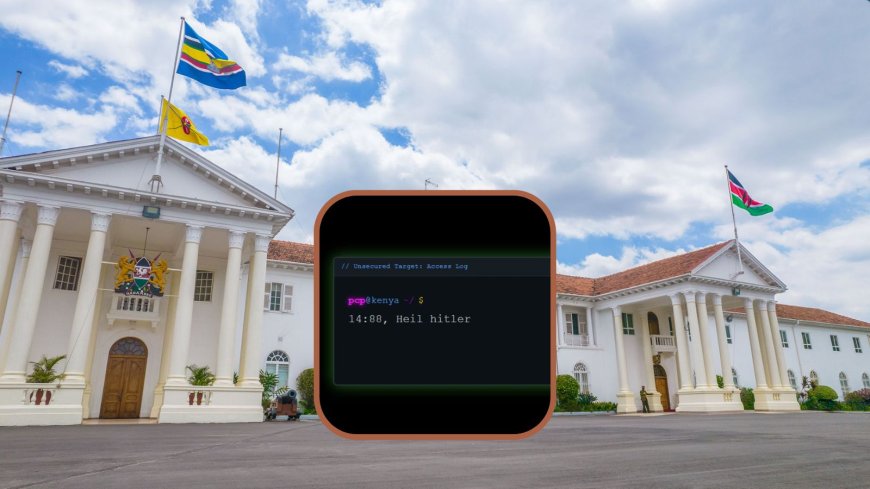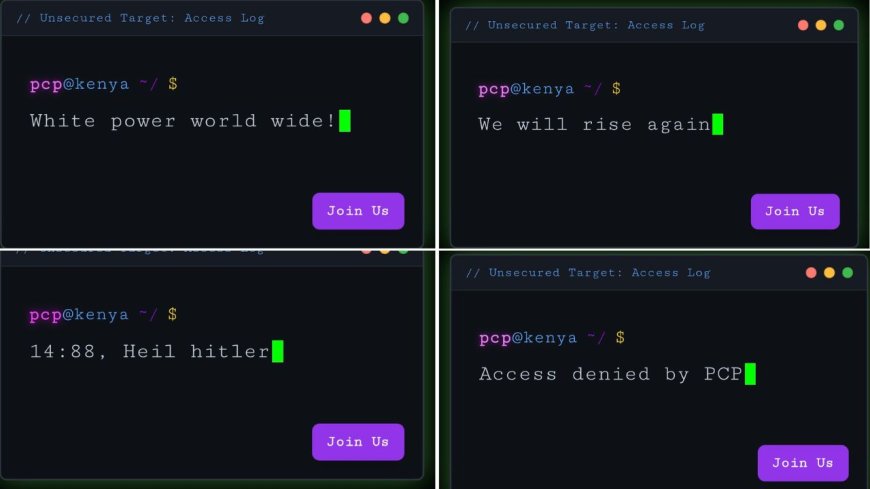Revealed: Group Behind Hacking Of Govt Websites, State House Included
Authorities said the threat has since been neutralized, and surveillance has been heightened to ward off any additional attempts.

The government has disclosed that a group calling itself PCP@Kenya carried out the cyberattack that knocked out several government websites on Monday, November 17, 2025.
In a statement issued by Interior Principal Secretary (PS) Raymond Omollo, the State Department for Internal Security and National Administration confirmed that the breach has been contained, and teams are working to fully restore access to the affected sites.
"The Government of Kenya wishes to notify the public that on 17th November 2025, it experienced a cybersecurity incident where various government websites were rendered inaccessible. The attack is suspected to have been carried out by a group identified as PCP@Kenya," the statement read.
Following the attack, officials triggered established cybersecurity protocols and brought in key partners to curb the disruption and bring services back online.

Screengrabs from some government ministries, agencies, and state departments that experienced disruptions on November 17, 2025. /VIRAL TEA KE
"The Government initiated its incident response and recovery efforts, supported by various stakeholders, to mitigate the effects of the incident and restore accessibility to the affected websites," PS Omollo stated.
Authorities said the threat has since been neutralized, and surveillance has been heightened to ward off any additional attempts.
"This is to notify the general public that the situation has been contained and that the Government is monitoring the situation. However, members of the public are advised to take necessary precautions, remain vigilant and report any suspicious cyber threat activity to the National KE-CIRT, NC4 and DCI," the government added.
The outage took major government services offline, leaving users stranded and unable to access crucial information or platforms they depend on. By Monday, several departments were rendered unreachable, including Immigration, the Directorate of Public-Private Partnerships, the Directorate of Criminal Investigations (DCI), and even the State House site president.go.ke.
The disruption also hit the Hustler Fund, the Immigration State Department, and the Government Press, while Nairobi County systems were caught up in the chaos too. However, some ministries — including Defence and Treasury — were reportedly untouched by the attack.
The attackers vandalized the affected sites with alarming content, posting messages like "Access denied by PCP", "We will rise again", and "White power worldwide". Some pages featured even more extreme and inflammatory lines, including "14:88 Heil Hitler", "You are being lied to", and claims that "ABSA is working with us, so are your politicians".
They also inserted a link to a Telegram channel that had already drawn more than 150 subscribers by the time the breach was discovered.
Authorities have cautioned that the perpetrators will face heavy legal action, noting the attack violated several Kenyan and global statutes.
"This attack is in breach of Kenya and other international laws and conventions including the Computer Misuse and Cybercrimes Act, the Kenya Information and Communications Act and the Data Protection Act and those found culpable shall face the full force of the law," the statement emphasized.
Even with the latest breach, officials are trying to calm public concerns, stressing that they’re fully committed to reinforcing Kenya’s digital systems and guarding them against future attacks.
PS Omollo said the government remains focused on its digital transformation plans and is actively boosting cyber-resilience by teaming up with private sector partners and other stakeholders.
This isn’t the first time state systems have been hit. In 2023, a similar incident occurred, with a Sudanese hacking outfit later claiming they had knocked several Kenyan platforms offline — including major government portals like e-Citizen — in what they framed as retaliation for alleged interference in Sudan. Sudan Anonymous issued the statements, though they offered no proof to back up their accusations.







